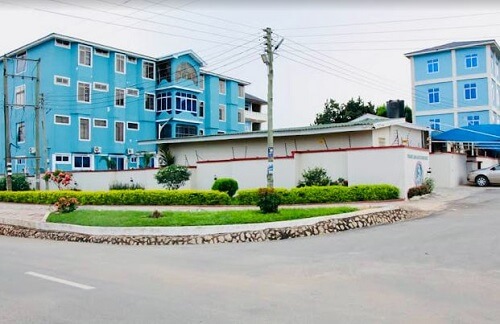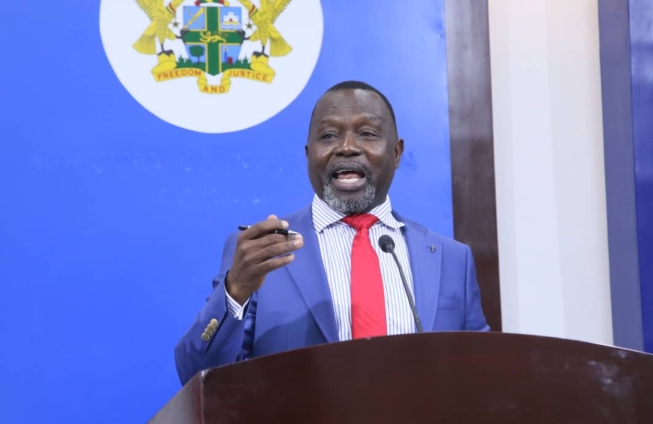The Human Rights Division of the High Court in Accra has been presented with a very disturbing case concerning an alleged violation of a patient’s constitutional rights to privacy and human dignity.
Gifty Amoakowaa, the applicant, has sued Peace and Love Hospital, alleging that the medical centre installed a closed-circuit television (CCTV) camera illegally in a consultation and examination room where she underwent a physical breast examination. Another respondent in the case is the Attorney General.
The case, which was filed under suit number HR/0103/2025, makes use of Articles 15 and 18(2) of the Ghanaian Constitution of 1992, which, respectively, provide for the protection of human dignity and the right to privacy.
The legal action is also grounded in Order 67 of the High Court (Civil Procedure) Rules, C.I. 47, and draws additional strength from provisions of the Public Health Act, 2012 (Act 851), particularly those relating to patient confidentiality as outlined in Section 167 and the Sixth Schedule, commonly referred to as the Patient’s Charter.
According to the Notice of Motion filed by her legal counsel, J.B. Afrifa of Akufo-Addo, Prempeh & Co., Amoakowaa is seeking multiple forms of relief from the court.
Central to her claim is the assertion that the presence of a CCTV camera in a consulting room, where intimate and highly sensitive physical examinations are conducted, constitutes an egregious breach of her fundamental rights.
“A declaration that the Respondent’s installation of a CCTV camera in its consulting and examination room, wherein physical breast examinations are conducted, constitutes a violation of the Applicant’s right to privacy and confidentiality inherent in the doctor-patient relationship, as guaranteed by the Patient’s Charter under Section 167 and Sixth Schedule of Public Health Act, 2012 (Act 851)”.
Legal counsel, J.B. Afrifa of Akufo-Addo
The motion further argues that the installation of the surveillance camera amounts not only to an intrusion on personal privacy but also to a gross violation of human dignity.
These constitutional breaches, the Applicant claims, have subjected her to serious psychological trauma and emotional distress, for which she is demanding general damages.

Plaintiff’s Reliefs
Amoakowaa’s legal team has also requested that the court declare Peace and Love Hospital’s actions as unconstitutional and issue a mandatory order for the immediate removal of all such CCTV installations in all consulting and examination rooms under the hospital’s management and control.
Further, the Applicant is calling for a formal written undertaking from the hospital’s management to delete any footage captured during the said examination and to desist from storing, publishing, transmitting, or disseminating such content now or in the future.
Although hospitals frequently point to surveillance as a means of protecting both employees and patients, the suit contends that such practices should never compromise a patient’s constitutional rights or dignity.

Amoakowaa allegedly described her experience as one of intense embarrassment and anxiety in her affidavit in support of the motion, adding that the knowledge of being recorded during such a personal examination has had psychological repercussions that have persisted.
Her attorney is anticipated to contend that, particularly in a medical setting that requires confidentiality, the hospital’s intentions cannot be overridden by administrative oversight or general security concerns, even if those factors were the basis for the hospital’s actions.
It is anticipated that the Attorney General, who is listed as a respondent, will provide insight into the issue from a constitutional and public interest perspective.
The Attorney General’s office is expected to explain the State’s stance on surveillance and medical privacy in healthcare facilities, particularly when it comes to private procedures.
A major legal precedent concerning the nexus of healthcare administration, technology, and human resources is expected to be established by the case, which is set to be heard later this month.

Depending on the result, it might result in significant changes to the way surveillance technology is used in hospitals nationwide, especially in rooms where patients have examinations that involve sensitive health topics or require the exposure of private parts.
More patients may be able to contest hospital policies that they feel violate their right to privacy and dignity if the court rules in favor of Amoakowaa.
However, a decision in the hospital’s favor might legalize the use of CCTV in healthcare settings, which might lead to fresh discussions regarding safeguards, consent, and transparency.
READ ALSO: Otumfuo Osei Tutu II Urges Global Mining Reform at Mining in Motion 2025























